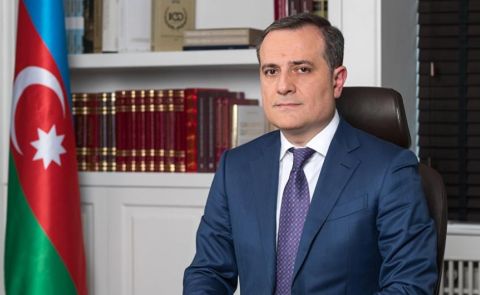
Recent Political and Economic Developments Regarding Georgia

NATO official on cooperation with Georgia
Alexander Vinnikov, the head of the NATO Liaison Office, said that we will aim to organise exercises more frequently - once every two years rather than three - and we will also look for new ways to work with the European Union and other international organisations to support Georgia.
He claims that during the NATO summit in Madrid, the Allies backed a package of specially designed assistance measures for Georgia, expressing NATO's ardent political support for that country. More precisely, it declares NATO's commitment to the Bucharest Summit's decision on Georgia's potential membership as well as support for its sovereignty and territorial integrity.
"Allies supported a set of measures, we call them individually tailored support measures for Georgia, which is one of the NATO partner countries most directly affected by external threats and interference in the security environment, which is related to Russia's unprovoked aggression against Ukraine. Individually tailored support measures demonstrate NATO's strong political support for Georgia, more specifically support for its sovereignty and territorial integrity, and NATO's commitment to the decision of the Bucharest Summit regarding Georgia's eventual membership,” the head of the NATO Liaison Office added.
“Clearly, the strategic concept, in which the security of the aspirant countries, including Georgia, was supported, is intertwined with the security of NATO allies. I will say here that the strategic concept also reaffirms NATO's commitment to the open door policy and to the decisions made at the Bucharest summit and subsequent summits. The measures include both political and practical assistance for Georgia in an individually tailored package. This new package is designed to help Georgia increase its capabilities as well as strengthen its resilience, including by increasing Georgia's participation in NATO cyber exercises, enhancing secure communications, and strengthening critical infrastructure protection,” Vinnikov flagged.
“We will continue to work on the Substantial NATO-Georgia Package, which remains the main framework for our practical assistance, including in areas such as air defence, intelligence, crisis management and cyber defence. We are also thinking of adding some new workspaces to the package. We will increase the frequency of exercises and try to hold them once every 2 years instead of 3. We will also try to find more synergies with other international organizations, including the European Union, to help Georgia. NATO plans to add staff to this office. In the coming months, we will work with Georgia on the implementation of the decisions made in Madrid", Alexander Vinnikov concluded.
Minister of Finance on economic situation
At the conclusion of the Government meeting on July 4, Georgia's Minister of Finance Lasha Khutsishvili stated that the economy is rebounding more quickly than we had anticipated. “Expectations are significantly greater than a 6 percent economic growth rate,” he stated.
"In May, there was an economic growth of 11.6 percent, and for the last five months, there has been an economic growth of 11.2 percent, which is a much higher indication than the optimistic predictions we had,” Georgia's Minister of Finance flagged.
“You know that this year we are projected to have 6% economic growth. This prediction was made in conditions when there was not yet the current geopolitical in the region, namely Russia's invasion of Ukraine. Naturally, this changed our plans, however, according to the data of the first five months, the pace of economic recovery is faster than we had predicted at the end of last year, at the beginning of this year. In this direction, we may revise our predictions when we have a draft of changes in the current year's budget. This will probably be the month of September. We monitor the pace of economic development by sector. Expectations are much higher than 6% economic growth. At the end of August, we will have a corresponding prediction for the current year," Khutsishvili noted.
Parliament speaker of the Parliament on Constitutional Changes
Shalva Papuashvili, Speaker of the Parliament, responded to a question about constitutional changes proposed in the Parliament that call for lowering the threshold by saying that depolarization must come first, and then the electoral threshold, not the other way around. “If lowering the electoral threshold could be used to achieve depolarization, it would have been done long ago,” he flagged.
In this context, Papuashvili remarked that although no one could see a lessening in polarisation, the 2020 parliamentary elections were held under the terms of a 1 percent threshold. Speaker of the Parliament asserts that the election threshold is still an open question and that the ruling party has not given up on it.
"The issue with political discourse is that certain members of the opposition attempt to propose entirely unrelated themes in an unrelated debate style. Constitutional modifications are not included in any of the 12 points the European Commission created.
The recommendations of the European Commission mentions the spirit of the Charles Michel agreement for the purpose of depolarization, but nowhere is it written to fulfil the content of the April 19 agreement - if someone wanted it, s/he would have said it directly. Where the European Commission considered it necessary, it transferred certain issues from the Michel agreement and included them in recommendations. Such is the case with the Prosecutor General. There are no other issues. Therefore, the manipulation should be put to an end and there should be no attempt to introduce those issues that are not related to the 12 recommendations of the European Union", said Shalva Papuashvili.
See Also


Nordic-Baltic Delegation Meets Armenian Leaders to Discuss Regional Cooperation and Peace

Azerbaijan Strengthens Energy Partnerships with Multiple Countries

BP Strengthens Presence in Azerbaijan’s Offshore Energy Sector

Netanyahu’s Letter to Aliyev: Mutual Trust, Solidarity Following Hamas Attacks, Facilitating Dialogue Between Israel and Türkiye

